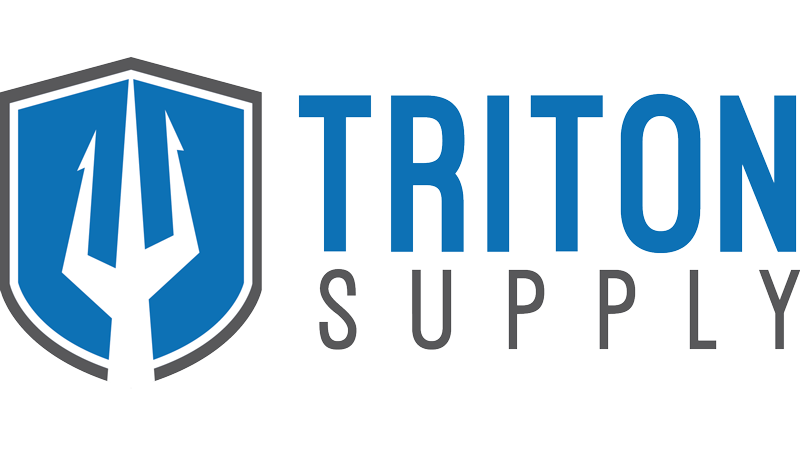Personal Hygiene for Older Adults
Good hygiene supports overall health, comfort, and confidence at any age. For older adults, it becomes even more essential due to changes in the body, mobility limitations, and other health concerns. Personal hygiene is closely tied to quality of life, and for seniors who struggle with daily grooming or incontinence, even basic hygiene can feel overwhelming.
The good news is that with the right tools, routine, and support, hygiene can be managed more easily. Below are key tips to help caregivers support older adults in maintaining hygiene, especially when incontinence is part of the picture.
Create a Simple, Consistent Routine
Older adults benefit from structure. A basic schedule for bathing, oral care, dressing, and toileting helps build consistency and prevents missed steps. When hygiene tasks are done in the same order every day, they’re more likely to become habit.
For family caregivers, a daily checklist can also keep everyone on the same page. This can include reminders to change incontinence products, clean surfaces, restock supplies, and handle laundry promptly.
Make the Bathroom Safer
Bathroom accidents are one of the top causes of injury in older adults. Fortunately, a few simple changes can reduce the risk:
- Add non-slip mats
- Install grab bars near the toilet and shower
- Use a raised toilet seat if sitting and standing are difficult
- Provide a shower chair or a handheld shower head
- Consider a walk-in tub for more secure entry and exit
These safety tools can help older adults manage hygiene more independently.
Support Dignity While Managing Incontinence
Incontinence is common with age, but it doesn’t have to compromise dignity or comfort. Choose incontinence supplies that fit well and meet the person’s needs. Some may only need light pads during the day, while others require overnight briefs or booster pads for added protection.
Always have a disposal plan in place. Sealable bags, odor-reducing sprays, and frequent laundry can help keep the home fresh and sanitary. Promptly changing soiled garments also reduces skin irritation and odor.
Be Respectful of Modesty
Hygiene can feel deeply personal, especially for aging adults who may rely on children or others for help. Respecting privacy and allowing older adults to do what they can on their own promotes confidence and preserves dignity.
Speak gently, give choices where possible, and approach every task with compassion. If a parent is uncomfortable receiving help from you, consider involving a home care aide or nurse of the same gender, if possible.
Use Helpful Hygiene Tools
Personal care tasks can become difficult due to arthritis, stiffness, or limited range of motion. The right tools make a big difference.
- Long-handled sponges or brushes for bathing
- No-rinse body washes or cleansing wipes
- Easy-pull clothing for less straining when changing
- Fragrance-free barrier creams and moisturizers
- Adaptive toothbrushes or flossers
When incontinence is present, keep gloves, wipes, and disposal supplies close by to make cleanup faster and easier.
Keep the Living Area Clean
A clean environment helps reduce the spread of germs and minimizes odor. Be sure to:
- Wash clothing and undergarments after each use
- Change bed linens at least once per week, or more often after accidents
- Sanitize bathroom surfaces regularly
- Discard used incontinence supplies promptly
Good hygiene in the living space supports good personal hygiene as well.
Address Feminine Hygiene Needs
For older women, keeping the perineal area clean is especially important. Choose unscented feminine wipes or cleansing cloths that are gentle on aging skin. Supportive hygiene tools, like bidets or easy-to-hold toiletry items, can also reduce strain.
Caregivers should monitor for signs of infection or irritation and speak with a doctor if symptoms appear.
Don't Overlook Oral Care
Neglected oral hygiene can lead to infections, gum disease, and even more serious conditions like heart disease. Older adults should:
- Brush at least twice per day
- Floss daily or use a water flosser
- Clean and soak dentures daily
- Visit a dentist regularly
- Report any changes in fit, sores, or pain
Dry mouth, a common issue in seniors, can also affect dental health. Stay hydrated and consider mouthwashes made for dry mouth relief.
Protect Skin Health
Seniors are more vulnerable to skin breakdown, especially if they use incontinence products. Daily bathing or spot cleaning is key, as is keeping skin dry and moisturized.
Apply barrier cream to prevent irritation, especially in areas exposed to moisture. If your loved one is bedbound, check pressure points often and change positions regularly to avoid pressure sores. For those with diabetes, regular foot checks are also essential.
Reduce Body Odor with Consistent Habits
Daily hygiene tasks help keep body odor under control. Encourage older adults to:
- Wash the race, underarms, and private areas each day
- Bathe or shower regularly
- Use deodorant as needed
- Change incontinence garments promptly
- Keep skin folds clean and dry
- Shampoo hair regularly
- Wash hands thoroughly after using the bathroom
Even small steps go a long way in helping someone feel fresher and more confident.
Why Some Seniors Struggle with Hygiene
It’s important to understand that personal hygiene challenges in older adults are rarely about laziness. In many cases, they stem from the following:
Difficulty standing, walking, or bending makes bathing, dressing, and toileting more difficult. Some older adults may simply be afraid of falling, which causes them to avoid bathing altogether.
Cognitive decline can make it easy to forget tasks or overlook cleanliness. Those with dementia or Alzheimer’s may need help with every step of the hygiene process.
Low energy, low motivation, and a loss of interest in personal care are all signs of depression. If a loved one is consistently avoiding hygiene, it may be time to seek mental health support.
Weakened vision and sense of smell can cause seniors to miss signs that they need to bathe, brush their teeth, or change their clothing. Hearing loss can also affect communication during hygiene routines.
When to Get Extra Help
If daily hygiene is becoming too difficult for a loved one, or for you as a caregiver, it may be time to explore outside support. Consider speaking with a provider if:
- There are frequent accidents and missed cleanups
- Your loved one refuses help or hygiene support
- Care tasks are becoming overwhelming
- There are signs of skin infections, rashes, or poor dental health
- You feel exhausted trying to manage everything on your own
Getting help is not giving up. It’s part of making sure your loved one stays healthy and feels respected.
Good hygiene is an essential part of aging well. It helps older adults stay healthy, socially engaged, and more confident in their daily lives. With the right products, a steady routine, and a little patience, personal hygiene can be addressed in a way that supports dignity and independence.
Our team is here to help you find the right incontinence products, hygiene tools, and support supplies for older adults. Whether you need protective underwear, cleansing wipes, or barrier creams, we have what you need to care for your loved one with confidence.

